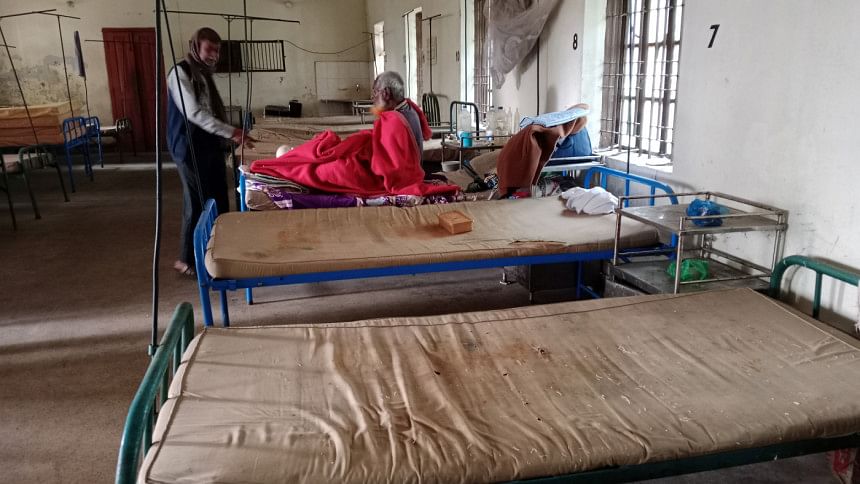Leprosy cases keep rising in Sylhet

The number of leprosy patients rose in Sylhet district in recent times amid inadequate treatment facilities.
A total 150 new cases were identified in the district in 2024, up from 79 in the previous year, according to Dr Manisar Chowdhury, district civil surgeon.
At present, there are 190 active leprosy cases in Sylhet district, including 124 males, 66 females, and seven children, he added.
According to data of the Directorate General of Health Services, the number of cases identified in 2014 were 194 in Moulvibazar, 150 in Sylhet, 106 in Habiganj, and one in Sunamganj.
In 2023, the numbers were 257 in Moulvibazar, 79 in Sylhet. 117 in Habiganj, and 103 in Sunamganj.
A large proportion of the patients are tea garden workers and their families.
According to data of Sylhet Leprosy Hospital and Lepra Bangladesh, around 65 percent of leprosy patients identified in Sylhet district are from tea workers' families.
Contacted, Dr Mohammad Noore Alom Shamim, assistant director of DGHS's Sylhet divisional office, said lack of awareness and unhygienic living condition are reasons behind spread of leprosy among tea workers.
Meanwhile, diagnosis and treatment facilities for leprosy remains inadequate in the district.
Although upazila health complexes and district hospitals across the country provide treatment and free medicines for leprosy, the facilities are largely insufficient.
Moreover, the Sylhet Leprosy Hospital, one of the only three government-run leprosy treatment centres in the country, is facing numerous operational challenges to cater to the needs of the patients in the district.
The hospital, established in 1890, is now in a shabby state and in urgent need of renovation. Intended to accommodate a total 80 patients, the hospital currently have only 48 functioning beds for patients. The diagnostic facilities are currently suspended due to shortage of staff, while the equipment remain unused.
On a typical day, some 10-13 patients receive treatment at the hospital's outpatient department. Due to shortage of manpower, patients admitted in the hospital are largely deprived of essential services.
A patient at the hospital, wishing anonymity, said they are not receiving the necessary medical attention due to acute shortage of doctors and nurses at the hospital.
Vidyut Kumar Deb, a senior nurse at the hospital, said the hospital is now running with only 28 staff members against 49 available posts.
"All nine posts of cleaners are vacant at present. The hospital is also in a dilapidated condition. The century-old building is crumbling, with plasters falling off and the roof leaking water during monsoon," he also said.
"The hospital once handled a wide range of services, but now no major surgeries are performed here. Higher authorities have been informed with request for addressing these issues," he added.
Lepra Bangladesh, an organisation actively involved in helping leprosy patients and raising public awareness about the disease, currently has 29 field-level initiatives, including financial assistances to patients and other support, said its representative Shyamal Kumar Chowdhury.
Janmejoy Dutta, deputy civil surgeon in Sylhet, said while leprosy is not highly contagious, it can spread mildly through respiratory droplets during sneezing and coughing.
Early signs include pale brown or reddish spots on skin without any sensation or hair growth. Immediate medical attention should be sought if any painless swelling appears anywhere on the body, or if there is loss of sensation in limbs or eyes, he added.

 For all latest news, follow The Daily Star's Google News channel.
For all latest news, follow The Daily Star's Google News channel. 



Comments